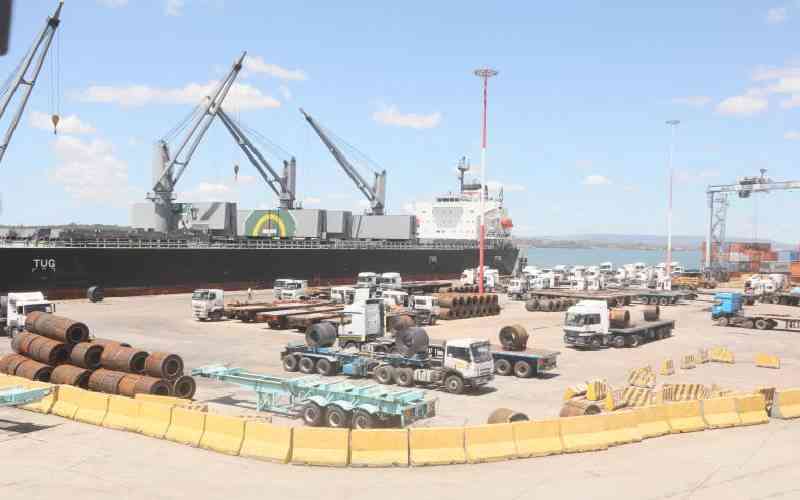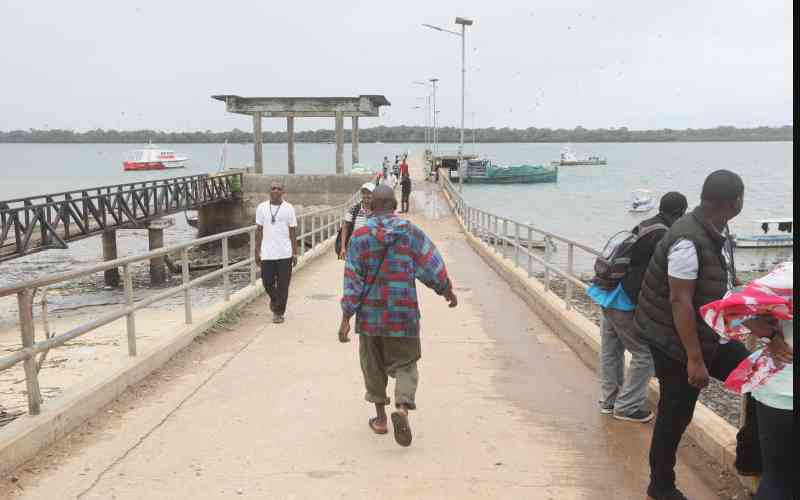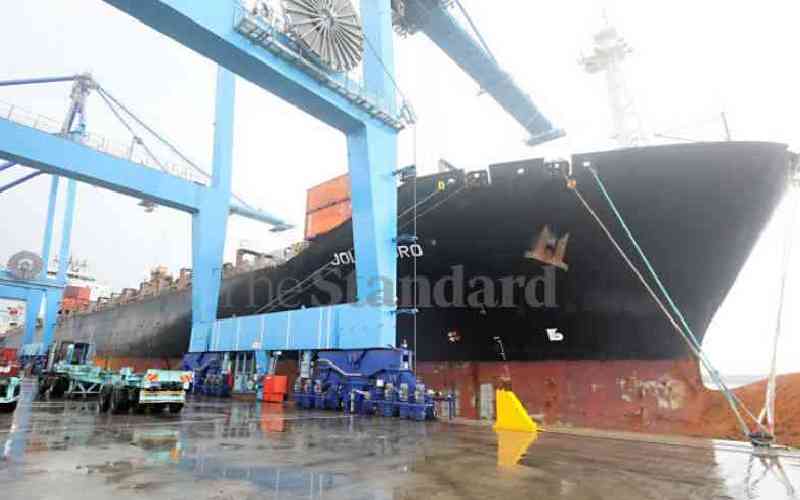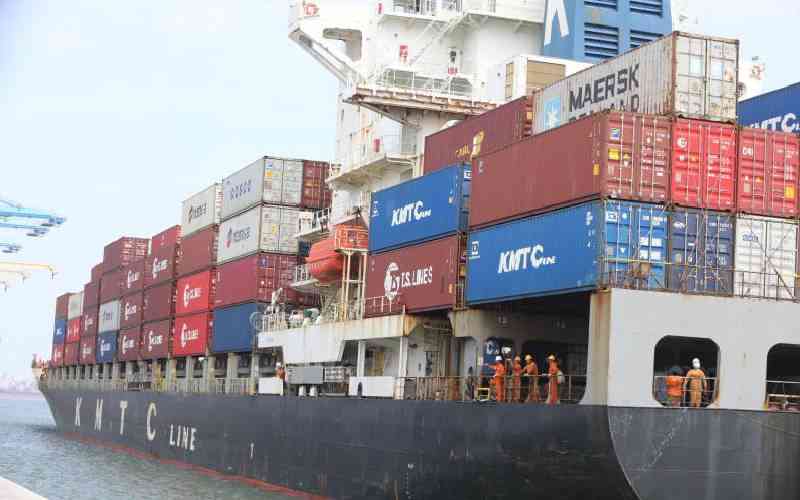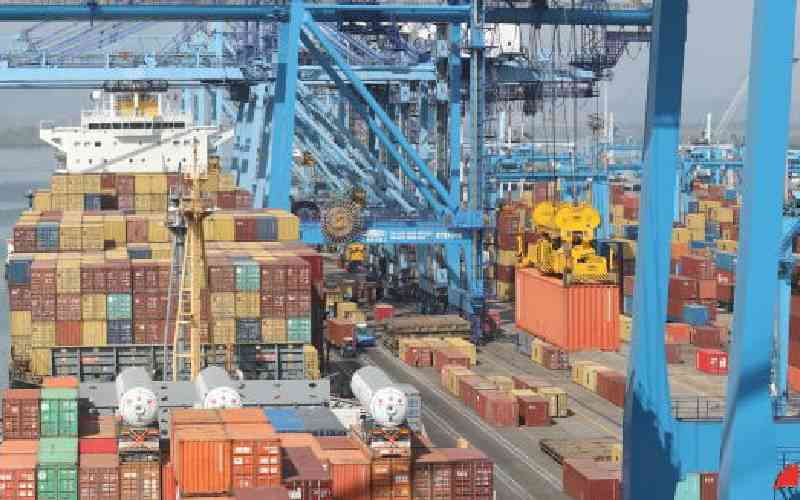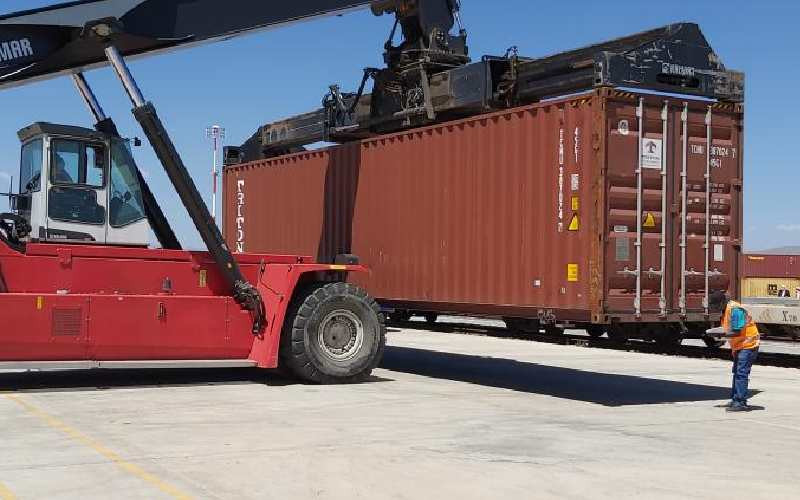
The Inland Container Depot (ICD) in Naivasha. [Antony Gitonga, Standard]
A crisis is brewing regarding how South Sudan cargo should be cleared following a State directive that reverted cargo clearance to the Port of Mombasa.
In March this year, Kenya made an agreement with South Sudan for the latter's cargo to be ferried to the Nairobi Freight Terminal for clearance.
The South Sudan government wanted its cargo to be specifically cleared at the city terminal.
However, two weeks ago, Kenya Ports Authority (KPA) advised shipping lines in a notice that cargo owners are free to nominate where their cargo should go and have the right to choose their mode. This was a result of the directive from President Ruto reverting cargo clearance to Mombasa.
Now, Transport Cabinet Secretary James Macharia has written to his National Treasury counterpart Ukur Yatan seeking guidance on how the South Sudan cargo should be handled.
Mr Macharia revealed that South Sudan and Kenya made the government-to-government arrangement in a letter dated March 7 this year.
- Ruto remains mute as healthcare crisis worsens
- Government calls on KMPDU to end strike
- Ruto meets KMPDU officials, promises lasting solutions to end industrial strikes
- Ruto forms a 20-member team to audit healthcare resources
Keep Reading
In 2018, the government had ordered that cargo be ferried to Nairobi and Naivasha Inland Container Depot by Standard Gauge Railway (SGR) prompting a protest from business people who felt the directive favoured the SGR.
In a letter dated October 4, of this year, Macharia noted that the government of South Sudan has not yet reversed the government-to-government arrangement since even the officers deployed by the South Sudan National Revenue Authority are still stationed at the NFT facility.
The facility is owned by Kenya Railway Corporation but operated by a Mombasa-based private transport logistics company.
"The purpose of this letter, therefore, is to confirm that handling of cargo for South Sudan at the Nairobi Freight Terminal facility is still considered a government-to-government arrangement until we are advised otherwise by the government of South Sudan," said Macharia.
"This ministry will also be writing to the minister of transport to reaffirm the same and also seek more arrangements on how to serve South Sudan better to continue using our transport corridors."
He stated that the government of South Sudan identified Nairobi Freight Terminal as its favourite clearance terminal on February 25 this year.
At the time, the Sudanese Transport Minister Madut Biar Yel said his government had settled on the facility in a communique to Kenya's Foreign Affairs ministry.
South Sudan had also wanted cargo destined for its borders cleared by six clearing and forwarding firms at the Nairobi facility.
The arrangement which was made in April this year and implemented early this month has caused controversy, with manufacturers and traders from South Sudan rejecting the move on grounds that the decision would raise their cost of operations.
They have complained that NFT is being operated by a private company that cannot accommodate all South Sudanese cargo imported through the port.
They want the order rescinded until their country builds its own inland container depot at Naivasha where they have acquired land.
On June 13, this year, the Association of South Sudan Manufacturers (ASSM) wrote to the Trade and Industry Minister expressing disappointment at the cargo haulage order.
The association noted that the order would raise the cost of transporting a container to Sh175,500 as a result of double handling in Mombasa and Nairobi as well as rail charges.
ASSM chairman Adam Kubanja argued that most traders and manufacturers in South Sudan have invested in trucks to transport cargo but they were now being forced to pay extra costs for transportation by rail to Nairobi.
Mr Kubanja noted that the security of the containers from the vessel berth to loading on the train to Nairobi was not guaranteed by the South Sudan government. The security cost would be passed on to cargo agents.
"We expect congestion and delays of between five to seven days in Mombasa as the containers wait for rail transportation to Nairobi," he said.
"This will greatly affect the free days given by shipping lines and subsequently heap extra charges on containers."
 The Standard Group Plc is a multi-media organization with investments in media platforms spanning newspaper print
operations, television, radio broadcasting, digital and online services. The Standard Group is recognized as a
leading multi-media house in Kenya with a key influence in matters of national and international interest.
The Standard Group Plc is a multi-media organization with investments in media platforms spanning newspaper print
operations, television, radio broadcasting, digital and online services. The Standard Group is recognized as a
leading multi-media house in Kenya with a key influence in matters of national and international interest.

